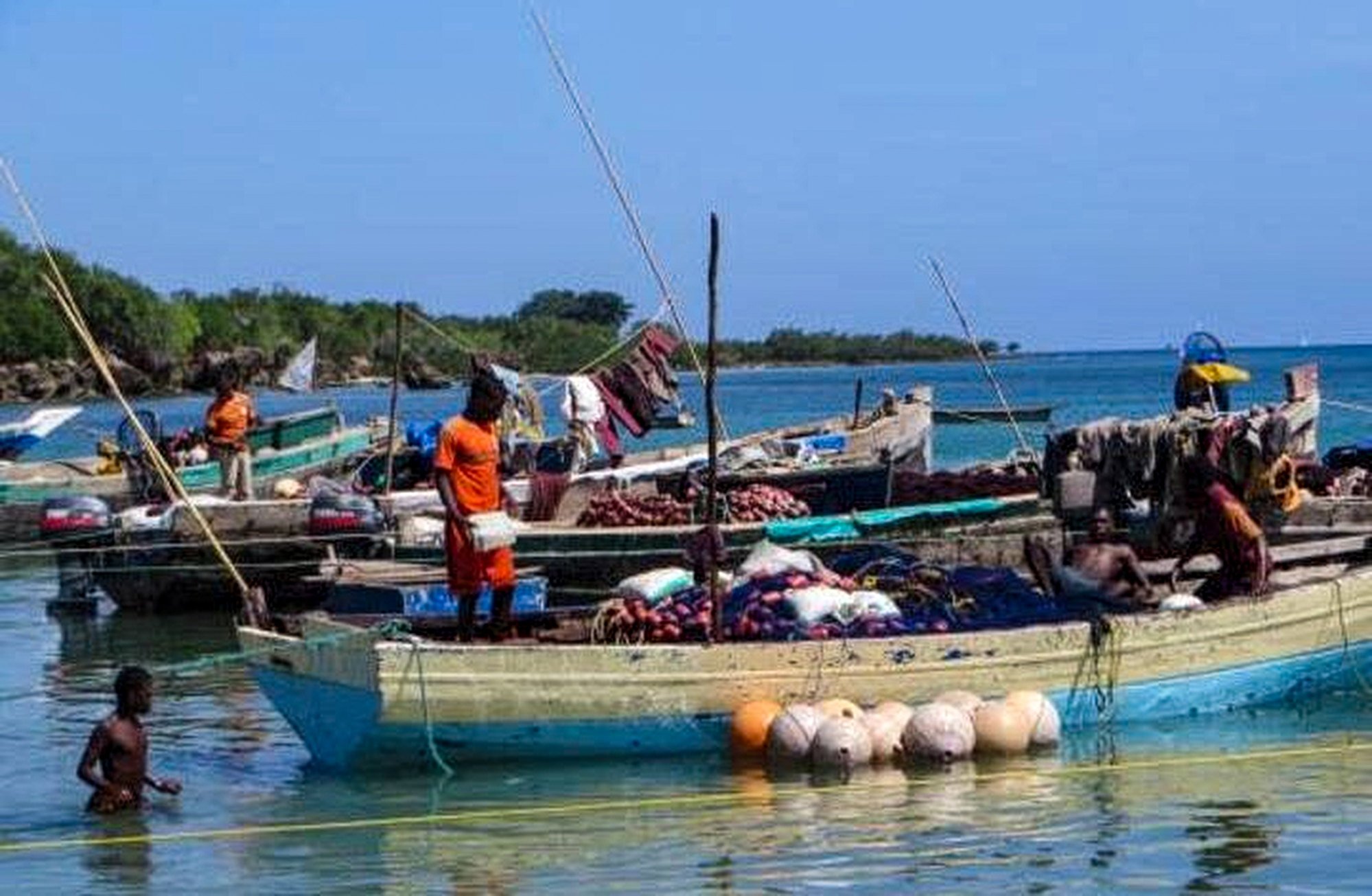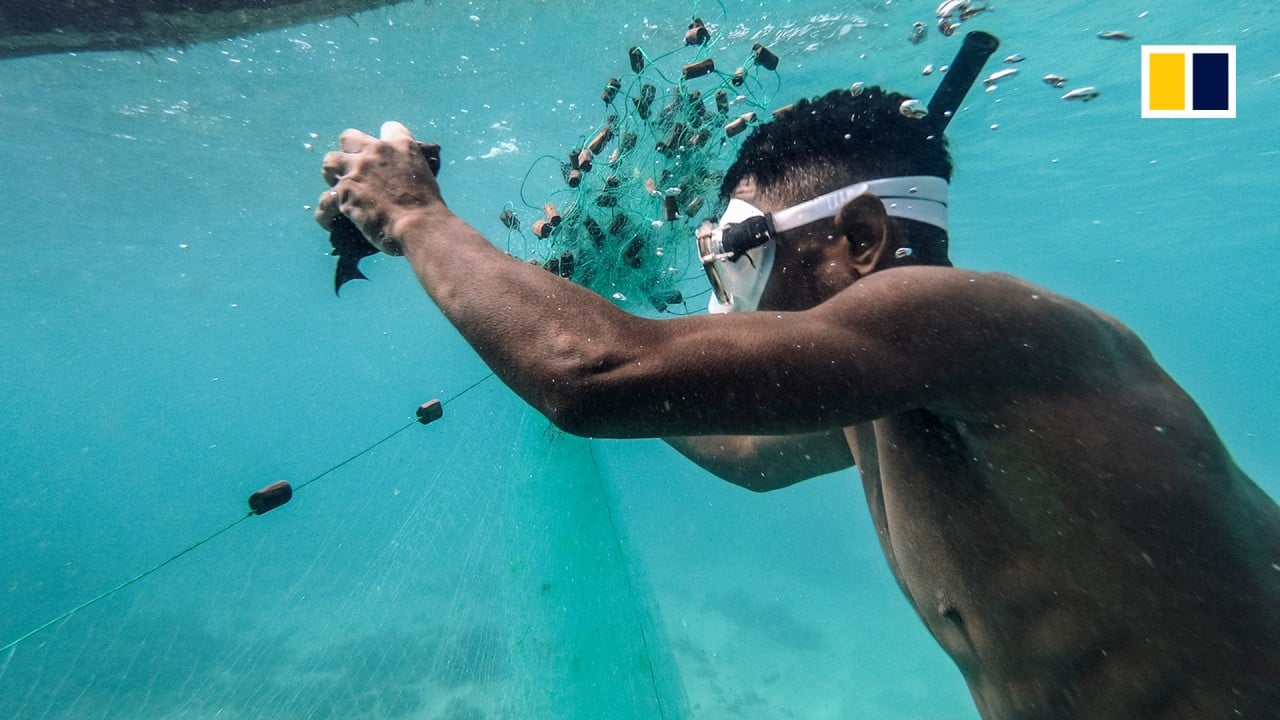Kilwa Masoko, which is home to beautiful beaches and ancient Swahili ruins, heavily relies on fishing, but the Tanzanian government says the city currently lacks the equipment and fishing infrastructure it needs to develop the industry.
The new port, which will support deep-sea commercial fishing, is expected to create 30,000 direct and indirect jobs and improve the fortunes of local fishing and seaweed farming communities.
Tanzania’s livestock and fisheries minister Abdallah Ulega told Chinese state-owned broadcaster CGTN Africa that the port will “bring about the development of the Tanzanian economy” and, unlike the small boats and canoes currently used by local fishing crews, it will be able to accommodate up to 10 larger vessels.
Its facilities will include fish-processing plants, an ice-making plant, a workshop for repairing fishing ships and boats and storage facilities that can store 90 tonnes of frozen fish per day.
“When completed, we would like to see this port contribute to the Tanzanian economy and help transform the blue economy in Tanzania,” Yao Huafeng, project manager at China Harbour Engineering Company, said.
The fishing port in Tanzania is part of a growing number of fishing facilities that China has built or is building in Africa but its fishing fleets have been accused of depleting fish stocks in parts of the continent, especially in West Africa.
01:29
Chinese-flagged fishing trawler stranded off Mauritius with fuel aboard
Chinese-flagged fishing trawler stranded off Mauritius with fuel aboard
Besides ports, China has fishery cooperation deals with dozens of African countries where Chinese companies have made multimillion dollar investments, including fishing and aquaculture training.
For example, Ghana signed a deal to borrow US$185.57 million from China Development Bank to fund 12 fishing ports and catch landing sites.
One of the biggest of these projects is the US$50 million Jamestown Fishing Port Complex, which is nearing completion and will house a fully functional dock, hydraulic structures, fish trading markets and fish processing plant.
Other major projects include work by China Harbour Engineering Company to rebuild port facilities at Beira in Mozambique that were destroyed by Cyclone Eline in 2000, a project funded by a US$120 million loan from China Exim Bank; as well as Jinzai Food Corporation’s processing factory in Kwale in Kenya.
 The new port at Kilwa Masoko in Tanzania will host modern trawlers in a region where traditional fishing methods prevail. Photo: X/ Platiniwomela
The new port at Kilwa Masoko in Tanzania will host modern trawlers in a region where traditional fishing methods prevail. Photo: X/ Platiniwomela
But other projects have run into difficulty because of their possible environmental impact including a planned US$55 million industrial fishing harbour in Sierra Leone, which conservationists and landowners criticised as “a catastrophic human and ecological disaster” that would destroy pristine rainforest, plunder fish stocks and pollute fish breeding grounds and marine ecosystems.
Chinese ships have also been accused of fishing illegally off the West African coast, putting stocks at risk.

01:52
Historic fishing community in Ghana demolished for new harbour project funded by China
Historic fishing community in Ghana demolished for new harbour project funded by China
Dr Miren Gutierrez, a research associate at Overseas Development Institute (ODI), said China is the world’s largest seafood consumer, and by investing in fishing ports, it gains access to the rich fishing grounds of the African continent as well as expanding its ties and influence.
However, she said the presence of Chinese trawlers in African waters has raised concerns about illegal, unreported, and unregulated fishing and unsustainable practices that could put local livelihoods at risk and threaten food security.
She said that some countries had imposed regulations to limit foreign trawling, but fleets were looking for ways round this “for example, some vessels flagged to African fleets are really connected to Chinese interests”, she said.
“Therefore, there is a need for stronger regulations and enforcement mechanisms to prevent IUU fishing by Chinese trawlers, and by others, and ensure sustainable management of fisheries in African waters,” Gutierrez said.
She said foreign distant water fishing could put local livelihoods at risk and threaten food security. “To circumvent regulation that limits foreign trawling in some countries, for example, some vessels flagged to African fleets are really connected to Chinese interests,” she said.
Rebecca Ray, a senior academic researcher at Boston University Global Development Policy Centre, said that a recent paper she co-authored concluded that China’s seafood demand is growing much more quickly than its domestic supply.
“By 2030 projections anticipate that consumption will outpace production by 18 million tonnes, or roughly twice the total level of domestic production in 2020. Thus, for Chinese consumers it is important to quickly find reliable sources of increased seafood supplies,” Ray said.
Ray said governance of distant-water fishing fleets has long been difficult, as international waters are not fully regulated.

01:55
Madagascar fishermen fear Chinese offer of new boats might be a fishy deal
Madagascar fishermen fear Chinese offer of new boats might be a fishy deal
She said an alternative to this practice is investment in ports and seafood processing facilities. Apart from the possible economic benefits, this would mean that fleets are subject to local regulation.
“[However,] it is crucial in these cases to fully consult with traditional coastal communities who may be economically affected by the new fishing fleets, either from their competition for seafood resources by larger, better equipped fishing fleets or from diminished catches due to marine pollution related to seafood processing plants,” she said.
“This is an area where international cooperation will need to continue to strengthen to ensure that consumers have access to seafood, host countries around the world see economic benefits from investment, and coastal communities in host countries are not negatively impacted.”
Source link : https://www.scmp.com/news/china/diplomacy/article/3266796/china-looks-africa-meet-rising-demand-seafood-can-it-balance-local-interests-its-own-needs
Author :
Publish date : 2024-06-16 07:13:58
Copyright for syndicated content belongs to the linked Source.





